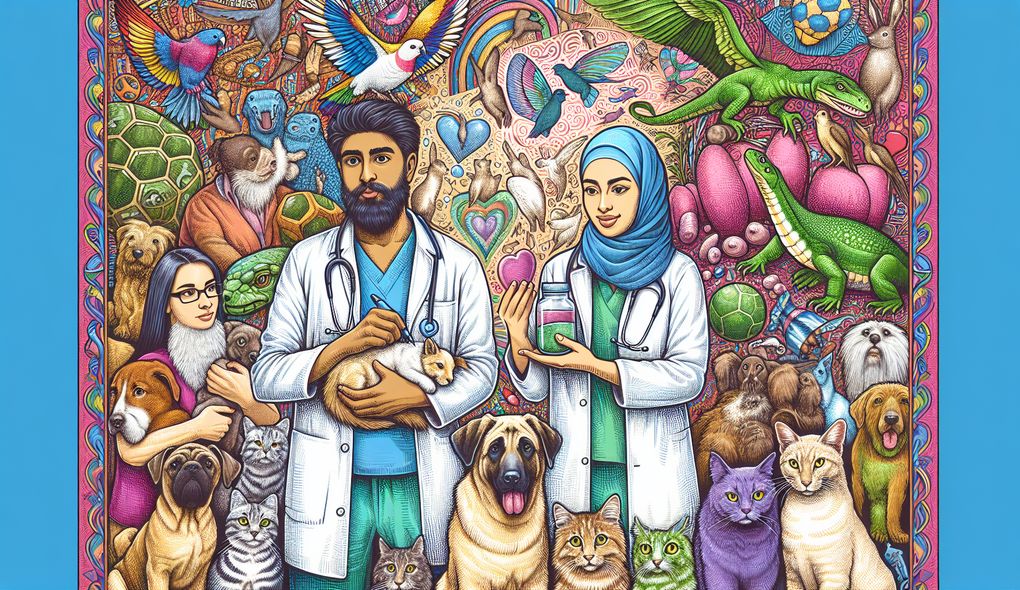What is your approach to supervising and mentoring junior researchers and technicians?
SENIOR LEVEL

Sample answer to the question:
My approach to supervising and mentoring junior researchers and technicians is to provide clear guidance and support to help them develop their skills and knowledge. I believe in fostering a collaborative and inclusive work environment where everyone feels valued and heard. I would start by assessing their strengths and areas for improvement, and then tailor my approach to their specific needs. I would provide them with opportunities to learn new techniques and technologies, and encourage them to contribute their ideas and insights. Regular check-ins and constructive feedback would be important to help them grow professionally.
Here is a more solid answer:
My approach to supervising and mentoring junior researchers and technicians is rooted in my advanced analytical and research skills, as well as my in-depth knowledge of animal anatomy, physiology, and pathology. I would leverage my expertise in molecular biology techniques, such as PCR, sequencing, and genotyping, to guide and support their research projects. Additionally, I would provide hands-on training and guidance in handling in vivo models of disease and in vitro cell culture techniques. To ensure effective communication, I would regularly schedule one-on-one meetings with my team members to discuss their progress, address any challenges they may be facing, and provide constructive feedback. Moreover, I believe in fostering a collaborative work environment and would encourage my team members to actively participate in multidisciplinary projects, where they can contribute their unique perspectives and learn from experts in different fields.
Why is this a more solid answer?
The solid answer expands on the basic answer by incorporating the candidate's specific skills, such as advanced analytical and research skills, in-depth knowledge of animal anatomy, physiology, and pathology, and expertise in molecular biology techniques. The answer also mentions how the candidate would apply these skills to guide and support the research projects of junior researchers and technicians. Additionally, the answer highlights the candidate's approach to communication and collaboration, which are important qualities for supervising and mentoring junior team members. However, the answer could still provide more specific examples or anecdotes to further strengthen the response.
An example of a exceptional answer:
In my approach to supervising and mentoring junior researchers and technicians, I strive to create a nurturing and empowering environment where their growth and development are prioritized. Leveraging my advanced analytical and research skills, I would actively engage in their research projects, providing guidance and support every step of the way. For instance, I would collaborate with them in designing experiments and analyzing data, encouraging them to think critically and independently. To enhance their technical expertise, I would organize regular training sessions and workshops, where they can learn new techniques and stay abreast of the latest advancements in the field. I believe in the power of effective communication, and would foster open and transparent channels of communication, ensuring that they feel comfortable expressing their ideas and concerns. Through regular feedback and performance evaluations, I would not only highlight their strengths, but also help them identify areas for improvement and devise strategies for growth. Furthermore, I would actively involve them in multidisciplinary projects, enabling them to collaborate with experts from various domains, broadening their horizons and fostering a sense of interdisciplinary teamwork.
Why is this an exceptional answer?
The exceptional answer goes above and beyond by providing specific examples and detailing the candidate's approach to supervising and mentoring junior researchers and technicians. The answer emphasizes the candidate's commitment to creating a nurturing and empowering environment and highlights how they would actively engage in the research projects of their team members. The answer also showcases the candidate's dedication to continuous learning and the importance they place on effective communication and collaboration. Overall, the exceptional answer demonstrates a comprehensive understanding of the responsibilities outlined in the job description and showcases the candidate's ability to excel in the role of a Veterinary Scientist.
How to prepare for this question:
- Reflect on your own experiences in supervising and mentoring others. Think about specific examples where you have successfully supported the growth and development of junior researchers or technicians.
- Familiarize yourself with the job description and identify the evaluation areas mentioned. Consider how your skills and experience align with these areas and craft your response accordingly.
- Research and stay updated on the latest advancements in veterinary medicine, particularly in areas such as analytical techniques, animal biology, and pathology. Being knowledgeable about current trends and innovations will demonstrate your commitment to staying current in the field.
- Practice active listening and effective communication skills. Think about how you can create an open and transparent environment where your team members feel comfortable expressing their ideas and concerns.
- Be prepared to provide specific examples or anecdotes to showcase your approach to supervising and mentoring. These examples will help illustrate your skills and provide evidence of your past successes in supporting the growth of junior researchers and technicians.
What are interviewers evaluating with this question?
- Advanced analytical and research skills
- In-depth knowledge of animal anatomy, physiology, and pathology
- Expertise in molecular biology techniques
- Experience with in vivo models of disease and in vitro cell culture techniques
- Strong communication skills
- Ability to work collaboratively in a multidisciplinary team

